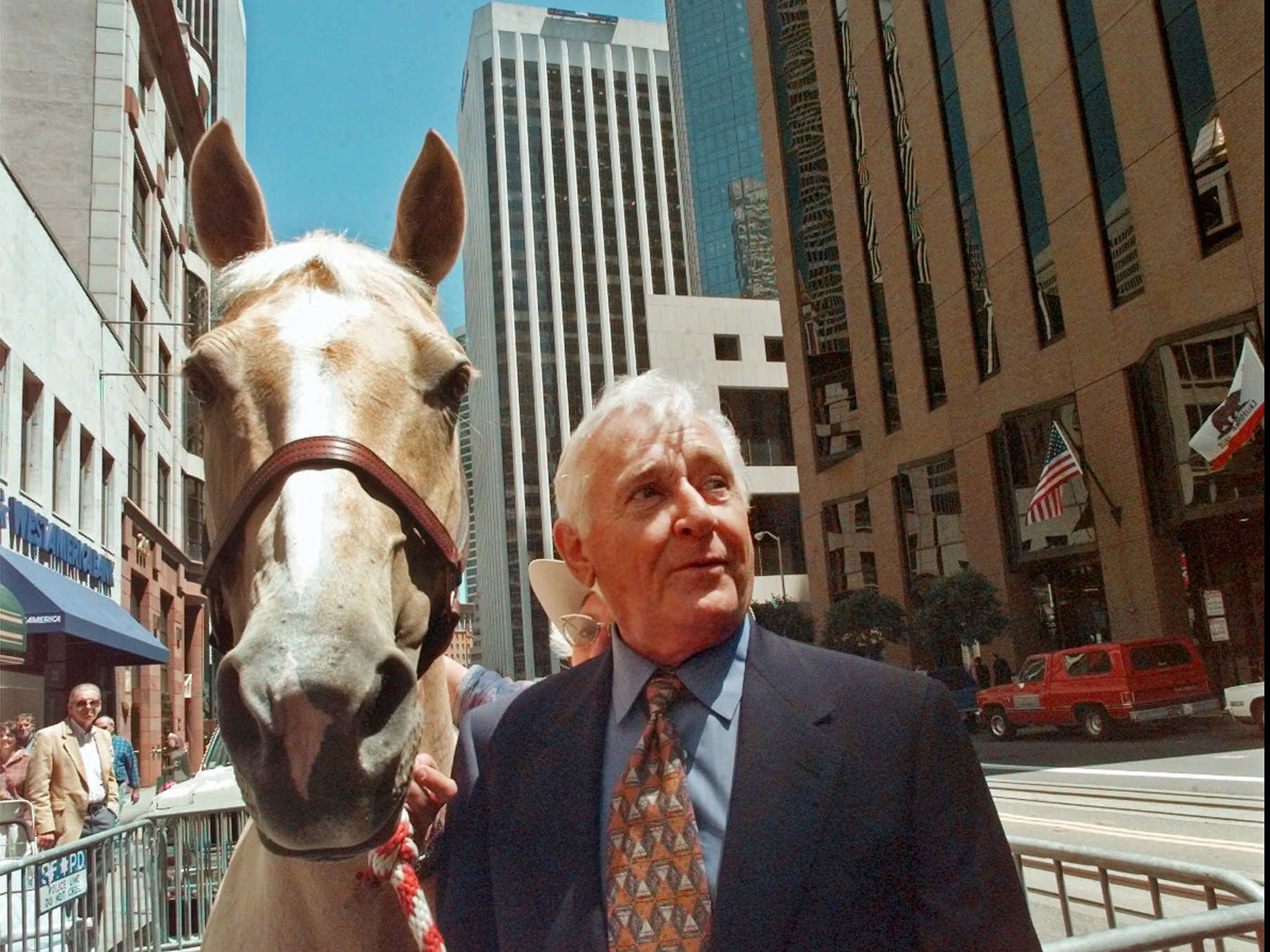Actor Alan Young, human star of horse sitcom 'Mister Ed,' dies at 96
The English-born actor also voiced Scrooge McDuck

Your support helps us to tell the story
From reproductive rights to climate change to Big Tech, The Independent is on the ground when the story is developing. Whether it's investigating the financials of Elon Musk's pro-Trump PAC or producing our latest documentary, 'The A Word', which shines a light on the American women fighting for reproductive rights, we know how important it is to parse out the facts from the messaging.
At such a critical moment in US history, we need reporters on the ground. Your donation allows us to keep sending journalists to speak to both sides of the story.
The Independent is trusted by Americans across the entire political spectrum. And unlike many other quality news outlets, we choose not to lock Americans out of our reporting and analysis with paywalls. We believe quality journalism should be available to everyone, paid for by those who can afford it.
Your support makes all the difference.Emmy award-winning actor Alan Young, who rode to enduring TV fame alongside a talking horse on the popular 1960s sitcom "Mister Ed" and co-starred in the classic sci-fi film "The Time Machine," has died at age 96, his manager said on Friday.
Young, who also provided the voice of cartoon characters including Disney's Scrooge McDuck, died from natural causes this week at the Motion Picture & Television Country House and Hospital, a Los Angeles retirement facility for those in the movie and TV industry, according to his manager, Gene Yusem.
The English-born actor was best known for his role as Wilbur Post, an amiable architect with a loquacious palomino living in his backyard barn, during six seasons on "Mister Ed," which still airs in reruns a half century after its original run on CBS ended.
The series, which followed the success of the "Francis The Talking Mule" movies, involved a horse named Mister Ed, played by equine thespian Bamboo Harvester, that talked, but only to one person, Wilbur.
For decades after the show ended, Young said he was often saddled with questions by fans about how the horse's lips were made to move to look like Mister Ed was talking. Young said the show's producers did not want the secret revealed, so he trotted out the rumor that peanut butter was put in the horse's mouth.
"So I made up the peanut butter story, and everyone bought it," Young told interviewer Nick Thomas in 2009. "It was initially done by putting a piece of nylon thread in his mouth. But Ed actually learned to move his lips on cue when the trainer touched his hoof. In fact, he soon learned to do it when I stopped talking during a scene. Ed was very smart."
Young galloped financially, earning a portion of the show's profits. The series, which aired from 1961 to 1966, co-starred Connie Hines as Wilbur's wife and Allan Lane as the horse's voice.
Fans of the show also fondly remember its theme song, starting with the lyrics: "A horse is a horse, of course, of course. And no one can talk to a horse, of course. That is, of course, unless the horse is the famous Mister Ed."
Young took a gentle approach to comedy, noting that comic actor Ed Wynn once told him that on television "you're going into somebody's home, so don't be insulting."
Young won an Emmy Award, honoring the best in U.S. television, in 1951 as best actor for "The Alan Young Show," beating out Sid Caesar, one of the biggest names in television at the time. "The Alan Young Show" won an Emmy for best variety show that year and ran from 1950 to 1953.
Young appeared in films as well, most notably director George Pal's "The Time Machine," a 1960 adaptation of the novel by H.G. Wells, starring a time-traveling Rod Taylor.
Young's other films included "Chicken Every Sunday" (1949) with a young Natalie Wood, "Mr. Belvedere Goes to College" (1949) with Shirley Temple and "Androcles and the Lion" (1952) with another animal co-star.
As a voice actor, Young performed as the grumpy Scrooge McDuck and worked on such programs as "The Smurfs" and "Scooby-Doo."
He was born as Angus Young in England on Nov. 19, 1919, and his family moved to Canada when he was 6. He worked in radio in Canada before moving to Los Angeles and changing his name to Alan. He was a naturalized American citizen.
Yusem, his manager for more than 30 years, said Young had been buried at sea.
"He was an honest, decent man, a pleasure to work with and never a problem," Yusem said.
REUTERS
Join our commenting forum
Join thought-provoking conversations, follow other Independent readers and see their replies
Comments